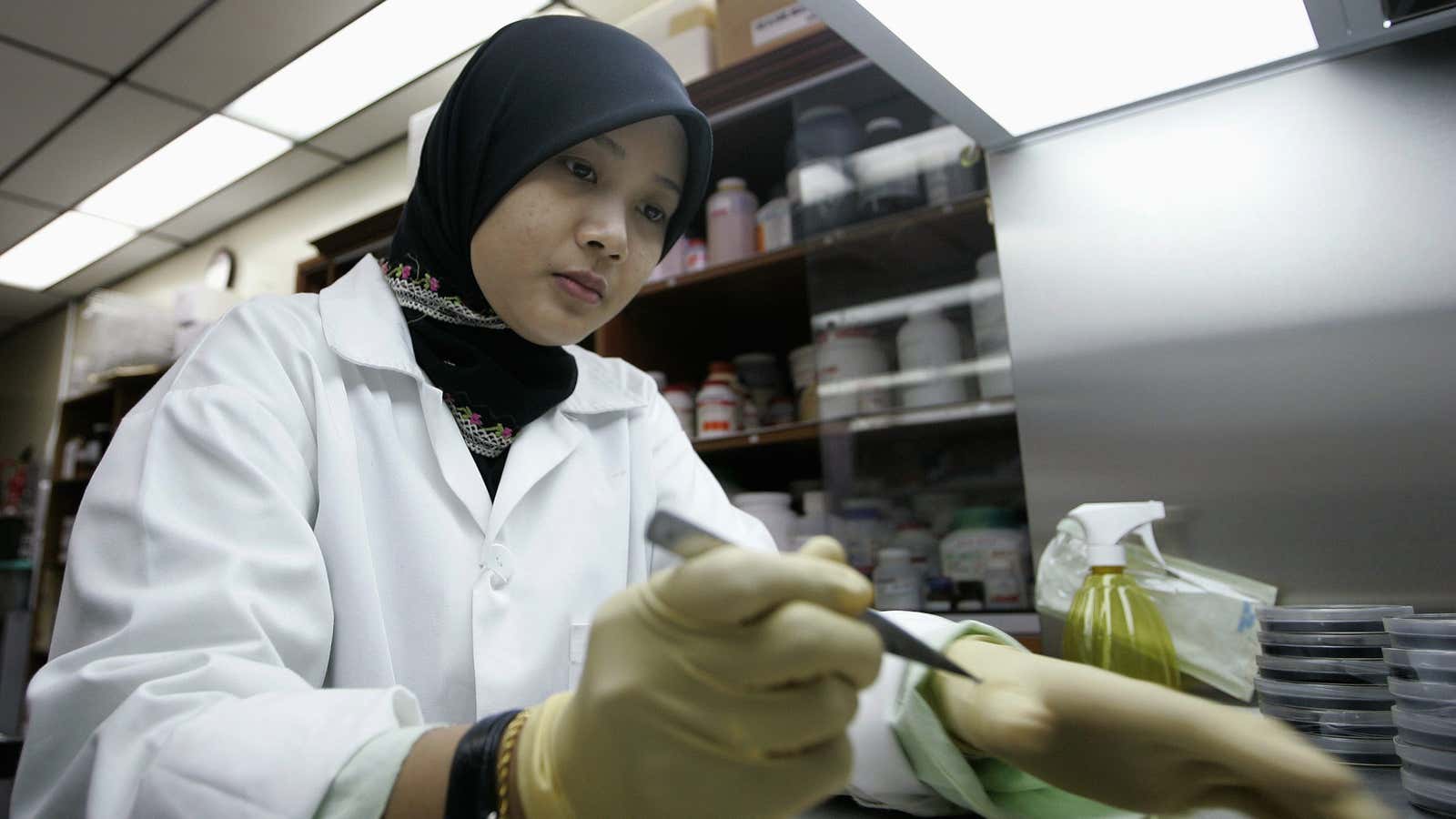The impact of US president Donald Trump’s recent immigration ban has been deeply felt in one very international community: scientists.
Many scientists currently in the US feel trapped, unable to visit their home countries. Ehssan Nazockdast, a post-doctoral fellow at New York University who specializes in fluid dynamics was planning to attend his sister’s wedding in Tehran, Iran in March, but worries now that he will be unable to re-enter the country.
Others who are based in the US but were out of the country when the executive order was passed now find themselves stranded away from their places of work. In response, scientists from all over the world are offering to host them in their own labs.
The “Science Solidarity List” launched on Feb. 1 by the European Molecular Biology Organization (EMBO), an organization of researchers in the life sciences, lists European-based scientists offering temporary bench or desk space, library access, and accommodation for US-based scientists stranded abroad because of the Trump administration’s immigration ban.
“Everyone agrees we must do something,” Maria Leptin, EMBO’s director, told The Scientist. Leptin, based at the University of Cologne, is offering researchers space in her own lab. “It’s a feeling of solidarity with people who are stranded and with our colleagues in the US.”
The list currently includes 430 host volunteers based in Europe, Canada, the UK, Brazil, Australia, Hong Kong, and more. Some of the listings go beyond desk space and offer “open-minded and friendly colleagues,” “help with finding accommodation,” “room in house,” “free wifi and coffee,” “a warm welcome,” “support,” “coffee, tea, and chocolate,” and “extreme tolerance.”
Magnus Nordborg, a population geneticist at the Gregor Mendel Institute of Molecular Plant Biology in Vienna, said he had been stranded for months in Europe following 9/11. At the time he was an assistant professor at the University of Southern California, where his colleagues covered his teaching duties until he could return. “History is full of examples of scientists who found refuge under worse circumstances…and it seemed obvious that we can and should do something,” he said. “Who knows how long this madness will last? If we can rescue even a single scientific career this way, it will have been worth it!”
Over 5 million of the US’s 29 million scientists and engineers were not born in the country, according to a 2013 report by the National Science Foundation. While the EMBO hosting program might provide a temporary fix, the ban is likely to hurt American science in the long run.
The hashtag #scienceshelters is being used to connect people on Twitter:
